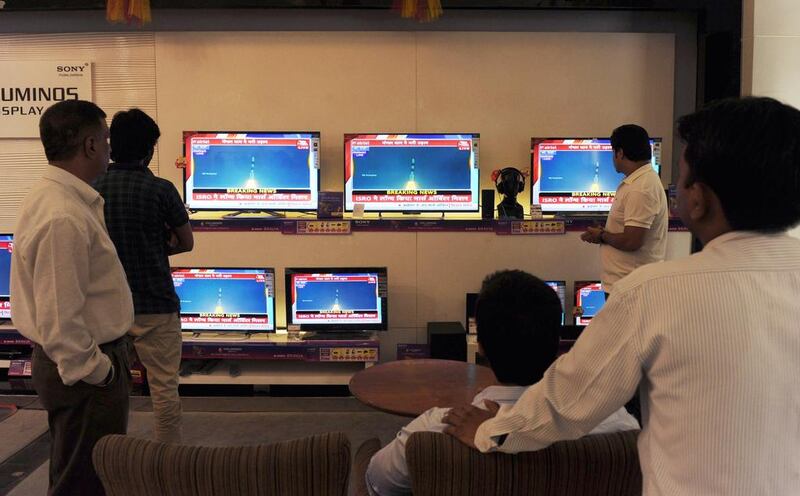I don't blame India for wanting to build a Mars rocket. (India's Mars rocket is all about prestige, November 4).
And I agree with your editorial that it is normal for all people to take an interest in space exploration.
But it is a matter of regret that so many individuals are still left out of India’s technological triumphs and economic progress.
India now has more dollar millionaires than almost any other country, and a growing middle class of educated, sophisticated, well-paid people. But it also has hundreds of millions of the illiterate poor.
Unless it can close the gap and improve income equality, social unrest seems likely to become worse, and that could imperil all the country’s gains.
Mark Carpenter, Dubai
Raise children, don’t train them
I am commenting on the article Practical advice on ending that tantrum (November 4). Children are not animals. Hence, you cannot train them. You'll need to make them understand things. It's part of the process of growing up. That's why children are raised, not trained.
Katja Khadija Weber Khan, Dubai
Action needed to tackle factory fires
Even though factory fires are common in Delhi, the authorities seem to be reluctant to tackle them, which is sad (Factory fire in New Delhi kills six, November 4).
Lack of regular inspections and poor maintenance of electrical accessories and equipment could be the reason for most of those accidents. Six people have been killed in the latest one.
Will the concerned authorities wake up now?
K Ragavan, India
Rising rents also pose a problem
I am writing in reference to the business article Prime house prices show 5% increase in capital (November 5). The property sector in the UAE is on fire once again, with rents rising in Abu Dhabi, Dubai and Sharjah. If this trend continues, a time will come when many people might be forced to return to their home countries as they will not be able to afford such high rents because their salaries are not increasing.
Fatima Suhail, Abu Dhabi
Militaries cannot defeat terrorism
The news report Pakistani Taliban chief killed in drone strike, officials say (November 2) says the killing of Pakistani Taliban leader Hakimullah Mehsud by a US drone strike has dealt a major blow to Pakistan's most feared militant group.
The US and the West may think that way, but they missed a point: the killing will create chaos in Pakistan and it will also bring more problems for the Americans. The US and Pakistan understand that they cannot eliminate terrorism by killing militants because there are too many of them and they are dedicated to their cause.
If terrorism could be eliminated through military actions, Afghanistan and Iraq would have been a better place now.
The US should not interfere in Pakistan’s internal affairs and complicate the situation there. Let Pakistan handle its own problems. Dialogue and negotiations will not bear fruit in one day. It is a continuous process.
Sahil Ahmed, Dubai
Norway’s stand deserves praise
I am writing in reference to the article Norway rejects US request to destroy Syrian chemical weapons (October 25).
Although a Nato member, Norway rejected the US request to help destroy Syria’s chemical arms, arguing that it was an unsuitable site because it lacked suitable staff, equipment and regulations.
Countries like Norway have their own economic and political issues to tackle. Before correcting others’ mistakes, sensible governments do what Norway did: focus on its own issues. Allies of the US are increasingly showing their ability to say “no” when it comes to intervention in others’ affairs.
Varsha John, Abu Dha





